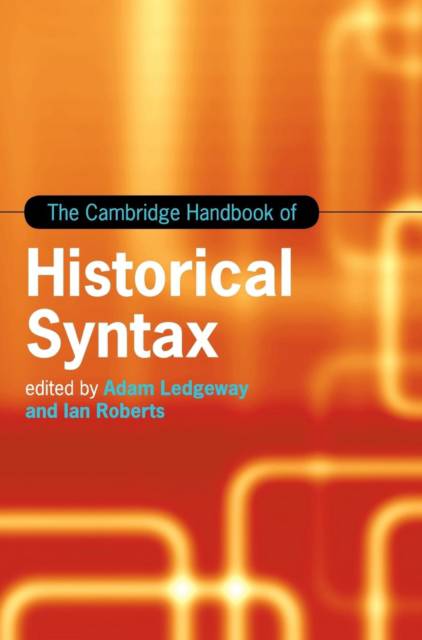
- Afhalen na 1 uur in een winkel met voorraad
- Gratis thuislevering in België vanaf € 30
- Ruim aanbod met 7 miljoen producten
- Afhalen na 1 uur in een winkel met voorraad
- Gratis thuislevering in België vanaf € 30
- Ruim aanbod met 7 miljoen producten
Zoeken
The Cambridge Handbook of Historical Syntax
€ 290,45
+ 580 punten
Omschrijving
Change is an inherent feature of all aspects of language, and syntax is no exception. While the synchronic study of syntax allows us to make discoveries about the nature of syntactic structure, the study of historical syntax offers even greater possibilities. Over recent decades, the study of historical syntax has proven to be a powerful scientific tool of enquiry with which to challenge and reassess hypotheses and ideas about the nature of syntactic structure which go beyond the observed limits of the study of the synchronic syntax of individual languages or language families. In this timely Handbook, the editors bring together the best of recent international scholarship on historical syntax. Each chapter is focused on a theme rather than an individual language, allowing readers to discover how systematic descriptions of historical data can profitably inform and challenge highly diverse sets of theoretical assumptions.
Specificaties
Betrokkenen
- Uitgeverij:
Inhoud
- Aantal bladzijden:
- 746
- Taal:
- Engels
- Reeks:
Eigenschappen
- Productcode (EAN):
- 9781107049604
- Verschijningsdatum:
- 11/04/2017
- Uitvoering:
- Hardcover
- Formaat:
- Genaaid
- Afmetingen:
- 183 mm x 257 mm
- Gewicht:
- 1578 g

Alleen bij Standaard Boekhandel
+ 580 punten op je klantenkaart van Standaard Boekhandel
Beoordelingen
We publiceren alleen reviews die voldoen aan de voorwaarden voor reviews. Bekijk onze voorwaarden voor reviews.










